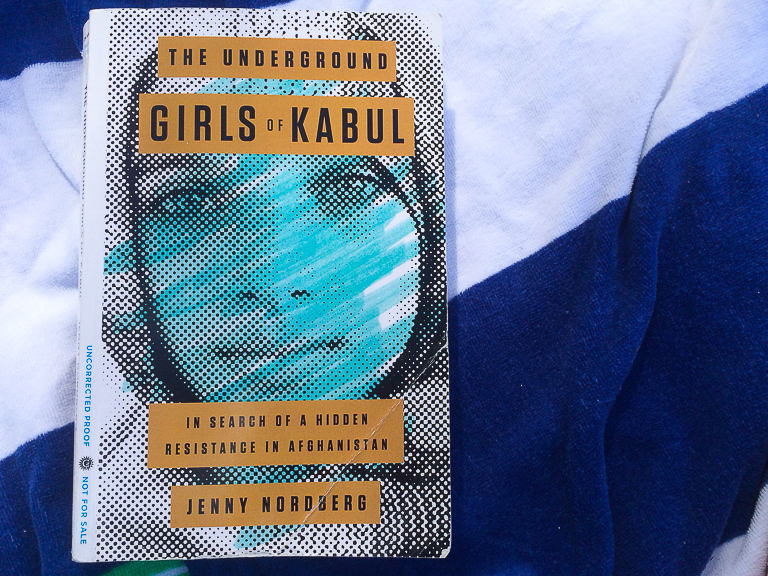The Underground Girls of Kabul: In Search of a Hidden Resistance in Afghanistan by Jenny Nordberg takes an in-depth look at the little-documented, yet very common practice of raising girls as boys during their childhood in Afghanistan.
These girls are called “bacha posh,” a phrase that literally translates to “dressed up like a boy. Nordberg discovers the many different reasons why these girls are presented to the world as boys, which all boil down to one tragic truth: girls are not wanted or valued in Afghanistan.
In Afghanistan, the pressure to give birth sons is high. It is a widely accepted belief that if a woman wants it bad enough, she will give birth to a boy. This belief can lead to a lot of problems for women who do not give birth to boys. It is also widely believed that having a bacha posh in your family will increase your chances of giving birth to a son in the future. And sometimes, families choose to raise their girls as boys for an economical reason — only boys can work and bring home money to help the support the family.
Interestingly, as long as a girl is dressed as a boy, no one cares that she works or does things that only boys can do — even if everyone around knows she is a girl.
Nordberg meets a number of different women in Afghanistan who explain to her what it is like growing up as a bacha posh. Some say that this has caused them to have more self-confidence. Some look at it as an experience in freedom that they are glad they had, because in Afghanistan, when parents raise their daughters as sons, they experience a number of freedoms not afforded to boys. They can work in a story and bring home money. They cut their hair, and don’t cover their heads.
But right before they reach puberty, these girls are expected to start dressing and acting like girls, so that they can take on the role of a proper Afghan woman: get married, and raise children.
But what happens to girls who are given all of these freedoms and then have them suddenly taken away? What happens when a bacha posh is suddenly told she must change the way she dresses and can’t go outside anymore? What happens when she suddenly has to start wearing a burqa and has to quit her job? Some women simply cannot go back.
One woman named Azita talks to the author about her decision to raise her daughter as a bacha posh:
“To Azita, bacha posh is less about a preference for sons and more a symptom of how poorly Afghan society works. But, as in politics, she works with the reality she’s been dealt. And sometimes, she argues, you have to think of temporary solutions while you slowly try to change for something bigger. She resents the fact that boys are the preferred children here. But she has a long way to go before she can make the argument in a convincing way that girls are of equal value to others. She believes her decision for Mehran, at its core, is also deeply subversive, since it will make her daughter into another kind of woman one day – one who an push society to change even further.
She is fully aware that others may disagree with her mothering choices, and at the same time defiant. “Yes this is not normal for you. And I know it’s very hard to believe why one mother is doing these things to her youngest daughter. But I want to say to you, some things are happening in Afghanistan that really are not imaginable for you as a Western people.”
The Underground Girls of Kabul: In Search of a Hidden Resistance in Afghanistan explores a culture in which women are desperate to escape their gender at any cost, and I highly recommend it.












[…] The Underground Girls of Kabul: In Search of a Hidden Resistance in Afghanistan by Jenny Nordberg Sometimes being fearless means quietly working within the system to get what you need. Even if it means hiding your true self in order to survive. In Afghanistan, some parents choose to raise their daughters as men in order for them to have more freedom and opportunity. An excellent read. I wrote a whole blog post about this book because I loved it so much and the women profiled deeply touched me – full review here. […]